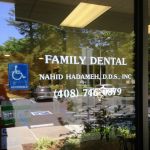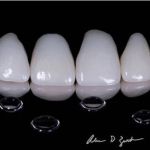Importance of Oral Cancer Screenings During Dental Checkups
Oral cancer is a serious health concern that can affect anyone, regardless of age or lifestyle. According to the American Cancer Society, oral cancer causes thousands of deaths each year in the United States. The good news is that early detection through oral cancer screenings during regular dental checkups significantly increases the chances of successful treatment. Understanding the importance of these screenings and how they can save lives is crucial for maintaining overall health.
1. What is Oral Cancer and Why Does It Matter?
Oral cancer refers to cancers that develop in the mouth or throat, affecting areas such as the lips, tongue, gums, roof and floor of the mouth, and the cheeks. Symptoms may include persistent sores, pain, or difficulty swallowing, but these symptoms can often be overlooked until the cancer reaches more advanced stages. That’s why early detection through regular screenings is essential for preventing oral cancer from progressing unnoticed.
1.1 Types of Oral Cancer
Oral cancers can be categorized into several types, including squamous cell carcinoma, which is the most common form, and other less common cancers like salivary gland cancers. These cancers can develop in any part of the mouth and throat, making it essential for dentists to regularly examine all areas of the mouth during checkups.
2. The Role of Dentists in Oral Cancer Detection
During routine dental checkups, your dentist does more than just clean your teeth—they also perform an oral cancer screening. This quick and non-invasive exam helps detect potential signs of cancer at an early stage when they are most treatable. Dentists are trained to look for unusual lumps, sores, or discoloration in the mouth that could be indicative of oral cancer. Regular checkups allow for early intervention, which can significantly improve treatment outcomes.
2.1 Screening Process During a Dental Checkup
The oral cancer screening process during a dental checkup typically involves a visual inspection and a physical exam of the mouth, neck, and jaw. Dentists may feel for lumps or abnormal growths, check for persistent sores or lesions, and inspect the tissue for any signs of redness or white patches, which could indicate precancerous or cancerous conditions. The dentist might also ask about any symptoms you’ve been experiencing, such as pain or difficulty swallowing.
3. The Benefits of Early Detection of Oral Cancer
Early detection is key to improving the prognosis of oral cancer. When detected early, oral cancers are more likely to be localized and easier to treat. In fact, the five-year survival rate for individuals with early-stage oral cancer is over 80%, but this rate drops significantly for those diagnosed in later stages. By regularly visiting the dentist for screenings, you are essentially giving yourself the best possible chance for early diagnosis and successful treatment.
3.1 Improved Treatment Options
Early-stage oral cancer is often treatable with less invasive procedures, including surgery or localized radiation therapy. In contrast, if oral cancer is diagnosed at a later stage, more aggressive treatments like chemotherapy or extensive surgery may be necessary. Early detection allows for more options with better outcomes, making it an essential aspect of maintaining oral health.
3.2 Reduced Risk of Mortality
With oral cancer, survival rates dramatically improve when the disease is caught early. According to the American Dental Association, regular screenings increase the likelihood of detecting cancer at an earlier stage, which is key to reducing the risk of fatal outcomes. By scheduling regular dental checkups and oral cancer screenings, individuals significantly lower their risk of dying from oral cancer.
4. Risk Factors for Oral Cancer
While anyone can develop oral cancer, certain risk factors increase the likelihood of developing the disease. These factors include tobacco use, excessive alcohol consumption, a family history of cancer, and a weakened immune system. People who have a history of HPV (Human Papillomavirus) infection are also at a higher risk. Being aware of these risk factors can help you and your dentist monitor your oral health more closely during routine checkups.
4.1 The Impact of Smoking and Alcohol Use
Smoking and excessive alcohol consumption are two of the leading causes of oral cancer. Smoking introduces harmful chemicals into the mouth, while alcohol can irritate the mouth’s tissues, making them more vulnerable to cancerous changes. By quitting smoking and limiting alcohol consumption, you can lower your risk of oral cancer significantly. Regular oral cancer screenings are even more important for individuals with these risk factors.
4.2 The Role of HPV in Oral Cancer
Human Papillomavirus (HPV), particularly the HPV-16 strain, has been linked to an increase in oropharyngeal cancers, which affect the throat, tonsils, and the back of the mouth. The rise in HPV-related oral cancers emphasizes the need for regular oral cancer screenings, as these cancers may not show symptoms until they are advanced. Vaccination against HPV is also an important preventive measure, particularly for younger individuals.
5. How Often Should You Get an Oral Cancer Screening?
For most adults, oral cancer screenings should be a routine part of your dental checkup every six months. However, individuals who are at a higher risk due to factors like smoking, excessive drinking, or a family history of cancer may need more frequent screenings. It’s important to discuss your personal risk factors with your dentist, who can recommend a tailored screening schedule based on your health history.
5.1 The Importance of Regular Checkups
Even if you don’t notice any symptoms, regular dental checkups are essential for maintaining overall health. A dentist is trained to spot signs of oral cancer early, even before they become noticeable to the untrained eye. Maintaining regular checkups allows you to stay ahead of potential issues, keeping your oral health—and overall health—in check.
6. What to Do if You Have Concerns About Oral Cancer
If you notice any unusual symptoms in your mouth, such as persistent sores, difficulty swallowing, or unexplained pain, it’s important to bring them up with your dentist. They may perform an immediate screening or refer you for further testing, such as a biopsy, to confirm the presence of cancer. Early action is essential, so don’t hesitate to discuss any concerns with your dental professional.
6.1 Understanding the Biopsy Process
If your dentist suspects oral cancer, they may perform a biopsy to confirm the diagnosis. This procedure involves taking a small sample of tissue from the affected area and sending it to a lab for analysis. A biopsy is the most definitive way to diagnose oral cancer and help determine the best course of treatment.







 Thrive Dental Studio5.0 (120 review)
Thrive Dental Studio5.0 (120 review) Florida Dental Implant Institute5.0 (67 review)
Florida Dental Implant Institute5.0 (67 review) Dr. Nirvana Anoosheh, DDS5.0 (8 review)
Dr. Nirvana Anoosheh, DDS5.0 (8 review) Zakhor Dental Group4.0 (146 review)
Zakhor Dental Group4.0 (146 review) Ascend Dental - Dr. Zurek and Dr. Sikora5.0 (174 review)
Ascend Dental - Dr. Zurek and Dr. Sikora5.0 (174 review) Amazing Smiles Family Dentistry4.0 (412 review)
Amazing Smiles Family Dentistry4.0 (412 review) The Importance of Oral Health Education During Pregnancy for a Healthy Pregnancy
The Importance of Oral Health Education During Pregnancy for a Healthy Pregnancy Best Tips for Brushing Your Teeth Properly for Healthy Gums: Essential Techniques for Oral Health
Best Tips for Brushing Your Teeth Properly for Healthy Gums: Essential Techniques for Oral Health Why Skipping Dental Checkups Can Lead to Bigger Oral Health Problems
Why Skipping Dental Checkups Can Lead to Bigger Oral Health Problems Advantages of Porcelain Dental Restorations
Advantages of Porcelain Dental Restorations How Can Diabetes Cause Tooth and Gum Problems? Preventing and Managing Oral Health Issues
How Can Diabetes Cause Tooth and Gum Problems? Preventing and Managing Oral Health Issues Healthy Habits for Promoting Good Oral Health and Hygiene: Tips for a Healthy Smile
Healthy Habits for Promoting Good Oral Health and Hygiene: Tips for a Healthy Smile